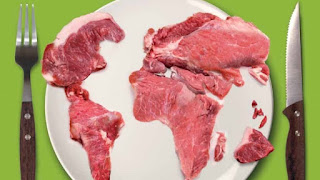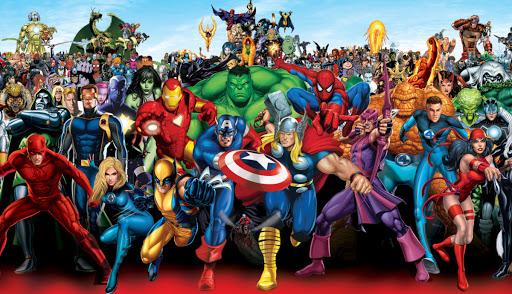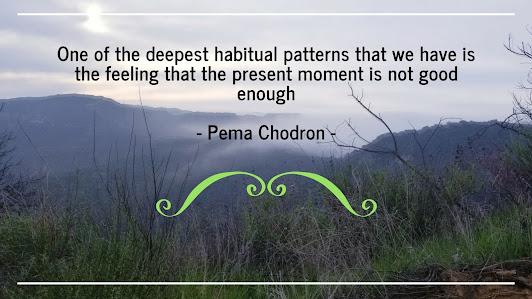Eat What You Should
Think Before You Eat
(Whatever is written below can be debatable on few points however it is certainly worth pondering upon.)
Every day, several times a day, every living being, in whichever part of the world he may be, enjoys a universal ritual - eating. Most people decide what they eat based mainly on taste, cost, habit, nutrition and convenience. But for those who are a little more thoughtful, here are some other points worth considering.
Let us compare the nutrition values of some common vegetarian foods and some common flesh foods:
Vegetarian foods (100 gms)
Sr. No.
|
Name of food stuff
|
Medical Calories
|
1.
|
Cashew nut
|
596
|
2.
|
Coconut
|
444
|
3.
|
Groundnut
|
549
|
4.
|
Cheese
|
348
|
5.
|
Ghee
|
900
|
Flesh foods (100 gms)
Sr. No.
|
Name of food stuff
|
Medical Calories
|
1.
|
Egg
|
173
|
2.
|
Fish
|
91
|
3.
|
Mutton
|
194
|
4.
|
Pork
|
114
|
5.
|
Beef
|
114
|
Anatomy
Humans are biologically
herbivorous
|
||||
Carnivores
|
Omnivores
|
Herbivores
|
Humans
|
|
Facial
muscles
|
Reduced
to allow wide mouth gape
|
Reduced
|
Well-developed
|
Well-developed
|
Jaw
type
|
Angle
not expanded
|
Angle
not expanded
|
Expanded
angle
|
Expanded
angle
|
Jaw
joint location
|
On
same plane as molar teeth
|
On
same plane as molar teeth
|
Above
the plane of the molars
|
Above
the plane of the molars
|
Jaw
motion
|
Shearing;
minimal side-to-side motion
|
Shearing;
minimal side-to-side motion
|
No
shear; good side-to-side, front-to-back
|
No
shear; good side-to-side, front-to-back
|
Major
jaw muscles
|
Temporalis
|
Temporalis
|
Masseter
and ptergoids
|
Masseter
and pterygoids
|
Mouth
opening vs. head size
|
Large
|
Large
|
Small
|
Small
|
Teeth:
Incisors
|
Short
and pointed
|
Short
and pointed
|
Broad,
flattened and spade-shaped
|
Broad,
flattened and spade-shaped
|
Teeth:
Canines
|
Long,
sharp, and curved
|
Long,
sharp and curved
|
Dull
and short or long (for defense), or none
|
Short
and blunted
|
Teeth:
Molars
|
Sharp,
jagged and blade-shaped
|
Sharp
blades and/or flattened
|
Flattened
with cusps vs. complex surface
|
Flattened
with nodular cusps
|
Chewing
|
None;
swallows food whole
|
Swallows
food whole and/or simple crushing
|
Extensive
chewing necessary
|
Extensive
chewing necessary
|
Saliva
|
No
digestive enzymes
|
No
digestive enzymes
|
Carbohydrate
digesting enzymes
|
Carbohydrate
digesting enzymes
|
Stomach
type
|
Simple
|
Simple
|
Simple
or multiple chambers
|
Simple
|
Stomach
acidity
with food in stomach
|
≤
pH 1
|
≤
pH 1
|
pH
4-5
|
pH
4-5
|
Length
of small intestine
|
3-6
times body length
|
4-6
times body length
|
10-12+
times body length
|
10-11
times body length*
|
Colon
|
Simple,
short, and smooth
|
Simple,
short, and smooth
|
Long,
complex; may be sacculated
|
Long,
sacculated
|
Liver
|
Can
detoxify vitamin A
|
Can
detoxify vitamin A
|
Cannot
detoxify vitamin A
|
Cannot
detoxify vitamin A
|
Kidney
|
Extremely
concentrated urine
|
Extremely
concentrated urine
|
Moderately
concentrated urine
|
Moderately
concentrated urine
|
Nails
|
Sharp
claws
|
Sharp
claws
|
Flattened
nails or blunt hooves
|
Flattened
nails
|
Clearly the human body is not made for a non-vegetarian
diet.
There are some arguments around hydrochloric acid. Hydrochloric acid is necessary for the digestion of protein. Proteinous *nuts* require the hydrochloric acid of the stomach to provide an adequate medium for the enzyme pepsin to act on the protein. But true carnivorous (meat eating animals, and 'omnivores' are meat eating as well) have in their digestive tracts a highly concentrated hydrochloric acid, about 1100% more so than ours.
Humans during the evolution have increased consumption of flesh foods over time, probably in order to survive in poor environments when there was a scarcity of fruits and nuts. Saying we're omnivores because we're capable of eating meat is just silly. We're capable of eating cardboard, too. And by the "capable" argument, then cats are omnivores too, since cat food has plant ingredients too. You yourself would feed them some plant food. Nobody would ever make the argument that cats are omnivores based on what they're capable of eating. But they sure make that argument for humans, enthusiastically.
Our so-called "canine teeth" are "canine" in name only. Other plant-eaters (like gorillas, horses, and hippos) have "canines", and chimps, who are almost exclusively vegan, have massive canines compared to ours. We have had incidences of choking deaths while eating meat. Real carnivores and omnivores don't have that problem. Among animals, plant-eaters have the longest lifespans, and humans are certainly in that category (and yes, this was true even before modern medicine).
Some Categorical Comparisons
Here are some interesting comparisons which simply cannot
be ignored and attributed to human evolution:
- Herbivores and humans get vitamin C from their diets, carnivores make it internally
- Both sip water, not lap it up with their tongues
- Both cool their bodies by perspiring whereas carnivores pant
- Human beings and herbivorous animals have little mouths in relation to their head sizes, unlike carnivores, whose big mouths are all the better for "seizing, killing and dismembering prey
- People and herbivores extensively chew their food, whereas swallowing food whole is the preferred method of carnivores and omnivores.
- We are not quick, like cats, hawks or other predators. We are not predators.
This is particularly true when it comes to vegetarianism. It's easy to identify because the anti-vegetarian arguments are usually so extreme, compared to other kinds of discourse. A person who would never normally suggest something so fantastic as the idea that plants can think and feel pain, will suddenly all but lunge for such an argument if they feel a need to justify their meat-eating. That's psychology for you.
 |
| Really? Are we humane? |
Health
Due to their unnatural diet meat-eating human beings are far more susceptible to diseases and disorders as compared to their vegetarian counterparts. Comprehensive investigations by groups such as the National Academy of Sciences have linked meat eating to cancer, and the Journal of American Medicine reports up to 90% of heart disease could be prevented by a vegetarian diet."
Environment
Meat eating also has hazardous effects on the environment, such as forest destruction, agricultural inefficiency, soil erosion and desertification, air pollution, water depletion and water pollution.
World Hunger
Consider the following data. One thousand acres of Soybeans yield 510 Kgs of usable protein. One thousand acres of rice yield 425 Kgs of usable protein. One thousand acres of corn yield 457 Kgs of usable protein. One thousand acres of wheat yield 473 Kgs of usable protein. Now consider: this one thousand acres of Soybeans, corn, rice or wheat, when fed to a steer, will yield only about 57 Kgs of usable protein. These and other findings point to a disturbing conclusion: meat eating is directly related to world hunger. A few statistics are as follows :
- If all the Soybeans and grains fed yearly to U. S. livestock were set aside for human consumption, it would feed 1300 crore people
- It takes 7.25 Kgs of grains and Soybeans to produce 0.45Kgs of feedlot beef
- Therefore about 20 vegetarians can be fed on the land that it takes to feed 1 meat eater
- Feeding the average meat eater requires about 16000 Litres of water per day, versus 4500 Litres per day for lacto-vegetarian diet
- While it takes only 95 Liters of water to produce a pound of wheat, it takes 9460 Liters of water to produce a pound of meat
- Harvard nutritionist Jean Mayer has estimated that reducing meat production by just 10 percent would release enough grain to feed 6 crore people
Some Quotes:
"Truly man is the king of beasts, for his brutality exceeds them. We live by the death of others. We are burial places! I have since an early age abjured the use of meat." - Leonardo Da Vinci
"It is my view that the vegetarian manner of living, by its purely physical effect on the human temperament, would most beneficially influence the lot of mankind." - Albert Einstein
"I do feel that spiritual progress does demand at some stage that we should cease to kill our fellow creatures for the satisfaction of our bodily wants.” - M. K. Gandhi
"The flesh eating is simply immoral, as it involves the performance of an act which is contrary to moral feeling- killing. By killing man suppresses in himself, unnecessarily, the highest spiritual capacity- that of sympathy and pity towards living creatures like himself and by violating this his own feelings become cruel." - Leo Tolstoy
"Flesh eating is unprovoked murder." - Benjamin Franklin
"As long as man massacre animals, they will kill each other. Indeed, he who sows the seeds of murder and pain cannot reap joy and love." - Pythagoras
"A dead cow or sheep lying in a pasture is recognized as carrion. The same sort of a carcass dressed and hung up in a butcher's stall passes as food." - J. H. Kellogg.
The Vedic Perspective
Foods such as milk products, grains, fruits, and vegetables increase the duration of life and give strength, health, happiness, and satisfaction. Conversely, foods such as, meat, fish and fowl are putrid, decomposed and unclean. They cause numerous hazards to physical health.
All Vedic literature, states that meat-eating is one of the four pillars of sinful life. Apart from bringing severe sinful reactions, meat-eating also dulls the human intellect thus rendering it incapable of understanding the higher dimensions of life. Therefore real spiritual life, nay real human life, cannot begin unless a human being stops killing his younger brothers, innocent animals, just for the satisfaction of his tongue.










Comments
Post a Comment